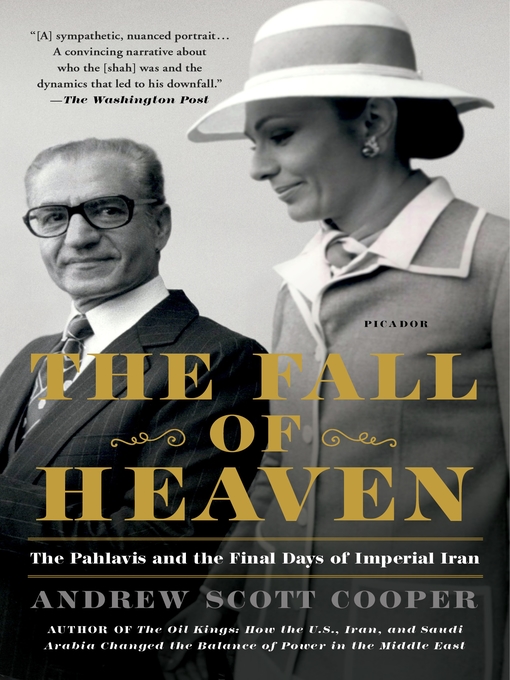A Gripping Account of the Rise and Fall of Iran's Glamorous Pahlavi Dynasty
In this remarkably human portrait of Mohammad Reza Pahlavi, one of the twentieth century's most complicated personalities, Andrew Scott Cooper traces the Shah's life from childhood through his ascension to the throne in 1941. Drawing on the turbulent post-war era, Cooper details how the Shah survived assassination attempts and coup plots to build a modern, pro-Western state, launching Iran onto the world stage as one of the top five powers.
The Fall of Heaven offers an intimate look at the Shah's political career alongside his courtship and marriage to Farah Diba, who became a power in her own right, and the beloved family they created. Through the eyes of leading Iranian revolutionaries, President Jimmy Carter, White House officials, the American embassy in Tehran, and Empress Farah herself, Cooper delivers an investigative account of the dramatic fall of the Pahlavi dynasty.
This sweeping narrative recreates in stunning detail the final days of one of the world's most legendary ruling families, the unseating of which helped set the stage for the current state of the Middle East. A must-read for anyone interested in Iranian history, Middle Eastern politics, and the rise and fall of great empires.
- Historical Fiction eBooks Available Now
- Always Available eBooks
- Always Available Comics
- Picture Books in a hurry
- Contemporary Romance
- Historical Romance
- Paranormal Romance
- Romantic Comedies (Rom-Coms)
- Always Available eBooks for All Ages
- See all ebooks collections
- Historical Fiction Audiobooks Available Now
- Available Now eAudiobooks for Adults
- Available Now eAudiobooks for Children
- Available Now eAudiobooks for Teens
- See all audiobooks collections




